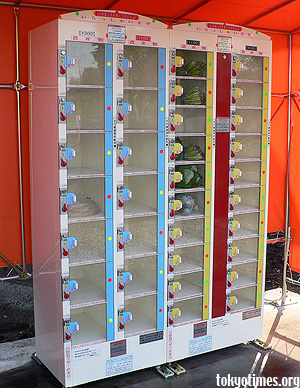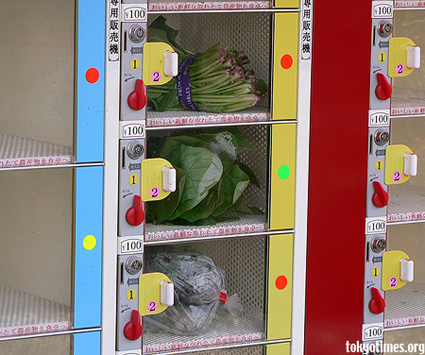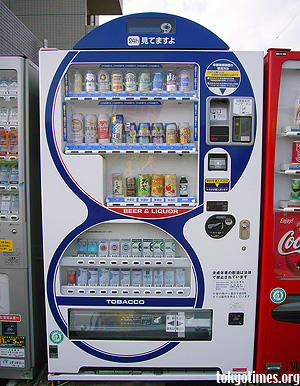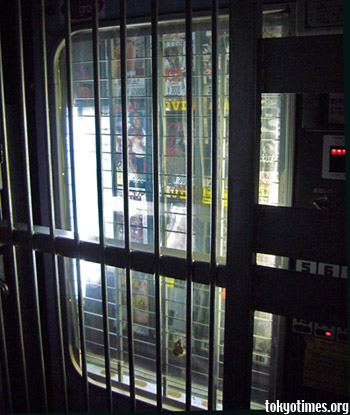“Vending machines spread in Japan because of people’s demand for automation. Leaving aside the issue of whether this is good or bad, people clearly want to purchase things without having to talk to others.”
Takashi Kurosaki, director-general of the Japan Vending Machine Manufacturers Association on his organisation’s astounding success.
With 5.51 million vending machines already in Japan, Kurosaki-san may well be on to something; however as association head, he could be a little biased, as surely the vending machine is simply a convenient way of grabbing a drink or snack on the way to work, rather than an indicator of Japanese society’s uncommunicative character.
I mean, whilst beverages and bars of chocolate are one thing, it’s not as though people would happily go out and buy the likes of fruit and veg from a machine just to avoid meeting people. Now that would be an indicator of societal indifference.

Perhaps.

But of course, if the edibles on display looked particularly enticing, then it wouldn’t necessarily mean one was remote, just more than likely in a rush.
No, surely the only time people purposely use such machines to avoid interaction is when they are underage drinkers or smokers — a mind-boggling collection of cigarettes and alcohol colourfully calling them from almost every other corner.

Or alternatively, when some entertainment of a more risqué nature is required, but the thought of aimlessly chatting about the weather whilst clutching a stack of decidedly un-Disney-like DVDs is too much, then the trusty old vending machine is once again a silent saviour.

Shari says
I’m not sure whether Mr. Korosaki is sly avoiding the crass and obvious commercial link to the success of vending machines or being oddly naive. Vending machines are big business because Japan has a lot of cities with centralized populations and high rent. The machines serve as a method of distribution which requires very little space relative to creating a retail outlet for the goods and do not require paying someone by the hour to man a register (which is no small consideration when minimum wage is high due to high cost of living in cities).
Since most vending machines are placed in cooperation with merchants or homeowners (who maintain them themselves or have the maintained by the manufacturer of the goods being offered) in exchange for part of the profit, it’s no surprise that they are everywhere as it’s nearly “money for nothing”.
It has very little to do with people not wanting to talk to others, particularly since most Japanese don’t feel obliged to carry on conversations with shop workers anyway.
Lachlan says
I loved the vending machines in Japan. I had some edible spaghetti bolognese out of a vending machine on top of a mountain!
What I never understood was the beer, smokes and adult material vending machines. If they had those unattended when I was underage, I would have been there all the time!
I know Japanese are generally law abiding… but surely too much temptation!